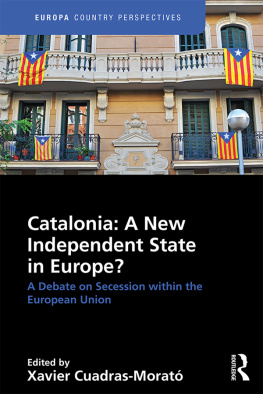INTRODUCTION
M. XAVIER PAOLI
THE "CHAMBERLAIN" OF THE FRENCH REPUBLIC AND THE FRIEND OF SOVEREIGNS
It was in 1903, and the King of England was making his first official journey in France since succeeding Queen Victoria on the throne of Great Britain. In the court of the British Embassy in Paris, where the sovereign had taken up his residence, a group of journalists, pencil and notebook in hand, was crowding importunate, full of questions, around a vivacious little gentleman, very precisely dressed in black, wearing the red rosette of the Legion of Honour in the buttonhole of his silk-faced frock coat. An impressive silk hat, slightly tipped, sheltered a head of abundant wavy white hair, strikingly in contrast with the man's still youthful appearance; at the utmost he seemed to be hardly fifty years old.
His aristocratic bearing might have been that of a diplomat of the Empire or a Tuscan aristocrat. The sensitive features of his finely oval facethe straight, delicately formed nose, the piercing eyes, now bright with shrewd humour, now soft with gentle sympathyall spoke the judicial mind, the penetrating observation, which could scrutinise the most secret thoughts, recognise the slightest shades of feeling.
Calmly, manfully, smilingly, with courtesy, the little gentleman sustained the assault of the reporters and warded off their indiscreet curiosity.
"What did the King say to M. Loubet?"
"Gentlemen, the King has told me none of his secrets."
"Did he not come for the purpose of completing a treaty of military alliance with us, and is he not to have this evening an important interview with the Minister of Foreign Affairs?"
"His Majesty had a very comfortable journey, is in the best of spirits, and appears to be delighted to be in Paris."
"But"
"His Majesty brought with him his little griffon dog, and immediately on arriving he asked for port wine and sandwiches."
"I beg"
"I may even say that the King will go to hear Sarah Bernhardt this evening, and that at the present moment he is busy with his secretary looking over the voluminous mail which has just arrived from London. In fact"
"Pardon meis it true that yesterday you arrested some suspected anarchists?"
"Anarchists? What are they?" And with these words the little gentleman still smiling turned away, to the discomfiture of the journalists, while certain English and French officers who, full of excitement, were crossing the great court, saluted him with courteous deference.
This little gentleman, whom I then saw for the first time, was M. Xavier Paoli.
When the time comes for writing the history of the Third French Republicnot its political history, which is already sufficiently well known, but the other, its picturesque, anecdotic, private history, that which must be sought behind the scenes of a government, and shows the little causes which often produced the great effectswhen that history comes to be written, it is certain that a long chapter and perhaps the most interesting, will be devoted to M. Paoli.
He is, in fact, a unique and singular character, a personage "apart," extraordinarily attractive, somewhat disconcerting, but wonderfully interesting in the group of French functionaries who have rendered real and precious service to their country. His official title was until very recently, and had been for twenty-five years, that of Special Commissioner of Railways for the Ministry of the Interior. This title, somewhat commonplace, is in itself intentionally obscure, tells nothing of the man or his office. The old proverb says: "The habit does not make the monk," and it may here be added that the title does not always designate the function. Attached to the political police, but in no respect appearing like a policeman, a sort of Sherlock Holmes, but a very high and particular ideal of Sherlock Holmes until now unknown, M. Paoli's three-fold and delicate mission was to watch over the foreign sovereigns and princes who for the past twenty-five years had been coming to France incognito, to facilitate their relations with the government, and on the whole, to quote M. Paoli's own words "to make their stay among us as pleasant as possible." "The guardian of Kings," as the King of Greece one day called him, was at the same time a keen diplomat. He, in fact, personified and filled an office which, notwithstanding its paradoxical aspect, proved to be of incontestible utility: he was the Grand Chamberlain of the Republic, accredited to its imperial and royal guests.
How was he brought to take up this important and difficult duty? How did he come to have all the necessary qualities to perform it, as he did, with equally remarkable facility, ease and tact? Psychology makes answer that motives must be sought in the origin, the early experience and subsequent career of the personality with whom we are concerned.
Like the great Napoleon, for whom he has always felt a touching adoration, M. Paoli is a Corsican. He was born in 1835 at La Porta, a picturesque little town perched like an eagle's nest on the crest of a hill on the eastern slope of the island, overlooking the sea, with the Island of Elba and the coast of Tuscany in the distance. His ancestor was that celebrated and fiery General Paoli, who at the close of the previous century stirred up a patriotic agitation in Corsica; on his mother's side he was a descendant of Marshal Sebastiani, who was ambassador and minister of Foreign Affairs in the reign of Louis Philippe. From his earliest youth, Xavier Paoli, like all Corsicans was passionately interested in politics. In 1859 a decree of the Emperor Napoleon III, who greatly esteemed this honourable and popular family, nominated young Paoli mayor of La Porta. According to custom the young official went to Ajaccio to pay his respects to the Prefect. This high functionary, on perceiving him, could not conceal his surprise.
"I am much pleased to make your acquaintance, young man," he said, "but I had supposed that your father would come himself."
"The trouble is that my father has been dead for several years."
"What! He has not just now been nominated mayor of La Porta?"














